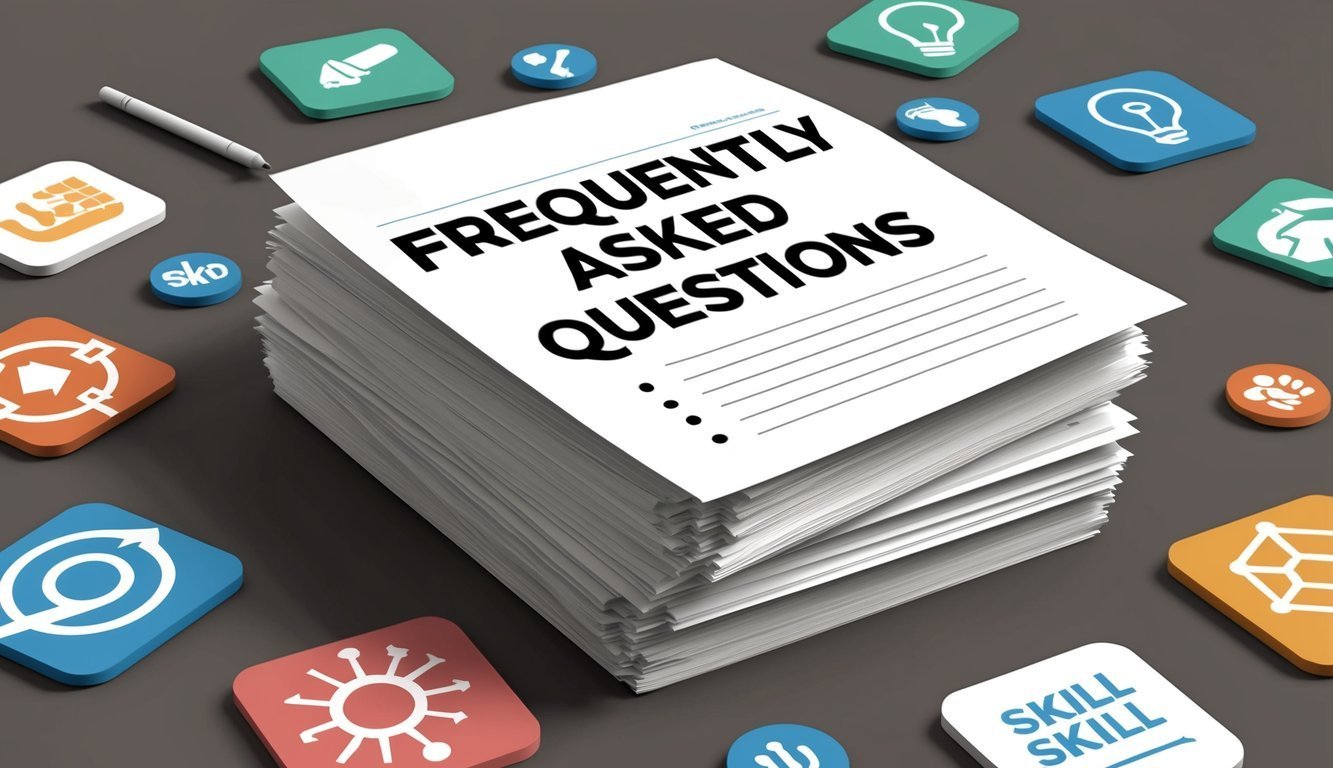Core Competencies
Core competencies encompass both hard and soft skills essential for career advancement.
These skills not only enhance your employability but also reflect your ability to contribute effectively within a team and organization.
Hard Skills
Hard skills are specific, teachable abilities that can be quantified or measured.
Examples include:
- Technical Skills: Proficiency in computer programming, data analysis, software skills, and engineering.
- Design Skills: Experience with graphic design, Adobe Creative Suite, or digital marketing techniques like SEO.
- Accounting: Knowledge of bookkeeping, QuickBooks, and basic math skills.
These skills are often gained through formal education, training programs, or direct work experience.
You can highlight these competencies on your resume by detailing relevant projects or certifications to showcase your expertise.
Soft Skills
Soft skills relate to your interpersonal abilities and emotional intelligence.
Key soft skills include:
- Communication Skills: Effective verbal and written communication, active listening, and public speaking.
- Leadership Skills: The ability to inspire and guide teams, demonstrating adaptability and patience.
- Problem-Solving Skills: Critical thinking and creativity in addressing challenges, along with strong organizational skills.
These skills are crucial for collaboration and achieving goals in a work environment.
Demonstrating your soft skills may involve providing examples of teamwork and conflict resolution to support your resume and strengthen your career prospects.
Application In Context
When tailoring your resume, it’s essential to communicate your skills effectively, aligning them with the specific requirements of the job you’re applying for.
Doing so can significantly improve your chances of catching the attention of hiring managers.
Tailoring Your Skills
To make your resume stand out, customize the skills section based on the job description.
Review the requirements and include keywords that align with your experience.
For instance, if a job emphasizes data analysis skills, ensure you highlight your strengths in this area.
Example Skills to Highlight:
- Management Skills: Showcase your ability to lead teams and manage projects effectively.
- Communication Skills: Highlight your proficiency in verbal communication and written documentation.
- Relevant Software Proficiency: Mention tools such as Salesforce if relevant to the position.
Crafting your resume this way emphasizes your suitability for the role and shows potential employers that you have taken the time to understand their needs.
Industry-Specific Skills
Different industries require unique skills.
Tailor your skills to reflect industry standards and expectations.
For example, in marketing, proficiency in SEM and advertising is critical.
Conversely, roles in healthcare will value patient care and relevant medical knowledge.
Examples of Industry-Specific Skills:
- Marketing: Lead generation, storytelling, and typography for effective campaigns.
- Sales: Cold calling techniques and customer service skills.
- Education: Teaching skills, writing abilities, and reporting expertise.
By focusing on industry-specific skills, you demonstrate your understanding of the particular demands in your field, making your application more relevant and impactful.
Frequently Asked Questions
Understanding which skills to include on your resume can significantly impact your job application.
Here are some common inquiries regarding essential skills for various job levels and how to articulate them effectively.
What are the essential skills to include on a resume for freshers?
For freshers, including transferable skills like communication, teamwork, and problem-solving is crucial.
Additionally, highlighting any relevant coursework, internships, or volunteer work can showcase your abilities.
How should personal skills be described in a resume sentence?
When describing personal skills, use concise language that demonstrates their impact.
For example, “Excelled in teamwork by collaborating with diverse groups on projects,” clearly illustrates the skill in context.
Can you provide examples of professional skills for a CV?
Examples of professional skills include project management, data analysis, and customer service.
Tailor these skills to match the job description to improve relevance.
What are the top five key skills considered valuable on a CV?
Commonly valued skills include communication, adaptability, problem-solving, teamwork, and leadership.
These skills are essential across various industries and roles.
Which hard skills are most beneficial to list on a resume?
Hard skills vary by industry but often include software proficiency, technical abilities, and language proficiency.
Make sure to align these skills with job requirements.
What technical competencies should be highlighted in a professional resume?
You should highlight technical competencies that are relevant to your field.
These may include coding languages, data management tools, or industry-specific software.
This specificity can enhance your employability.

